The Civil War was about just one states' right: the right to own slaves.
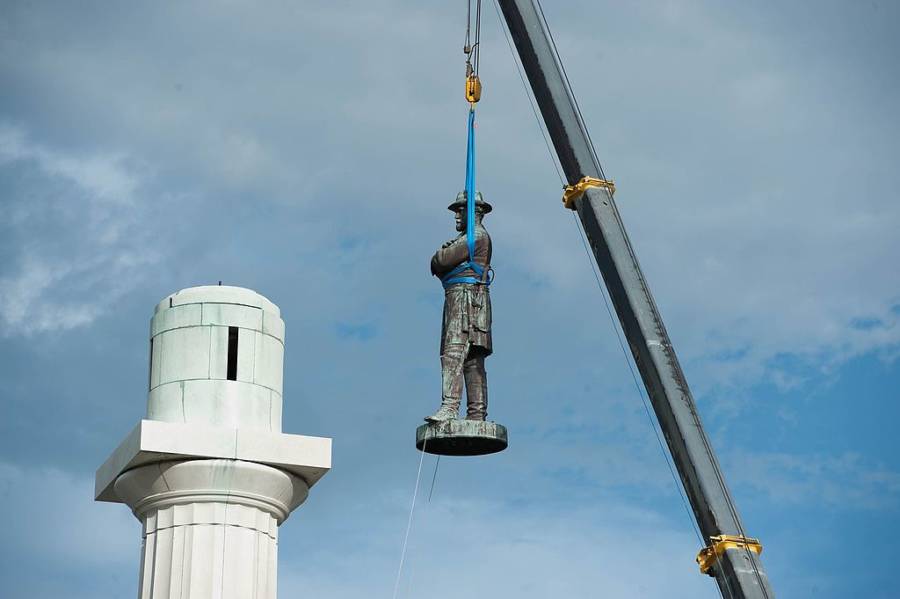
Wikimedia CommonsA statue of Confederate General Robert E. Lee is removed from its perch in New Orleans on May 19, 2017.
As Confederate monuments come down across the South, the Civil War has once again become a lightning rod throughout the United States.
Many of the monuments’ defenders have claimed that the Civil War was not about slavery but instead about states’ rights.
And while it’s true that the North did not go to war to free the slaves — they fought to preserve the union — the South went to war to preserve one states’ right: the right to own slaves. Make no mistake, slavery was behind everything that led to the American Civil War.
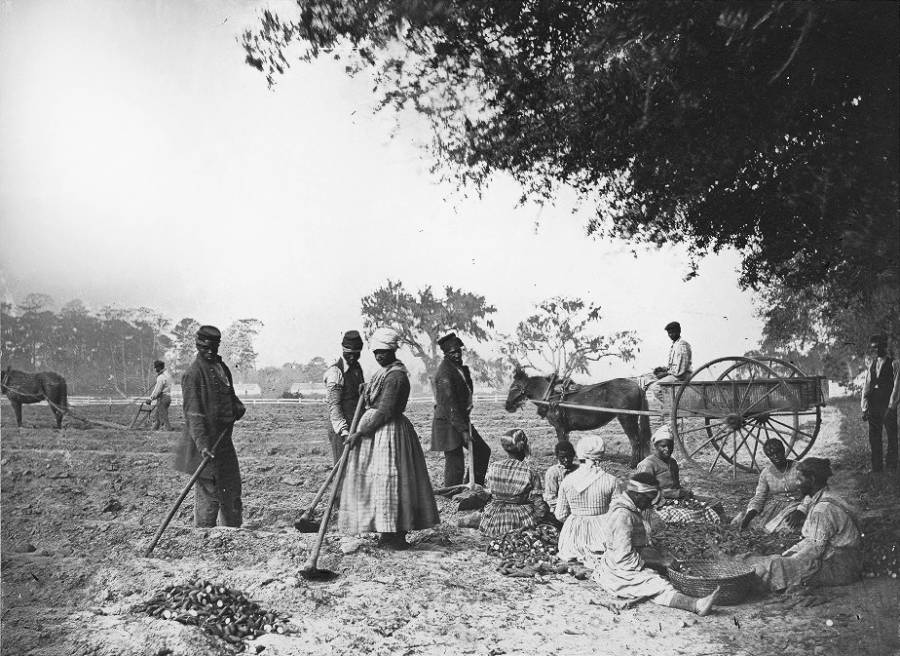
Henry P. Moore/Library of Congress via Wikimedia CommonsSlaves work in the sweet potato fields on James Hopkinson’s plantation on Edisto Island, South Carolina. Circa 1862-1863.
In 1850, California sought to enter the Union as a free state. This threatened to disrupt the balance of slave states and free states.
As part of the Compromise of 1850, California was admitted to the Union as a free state and the slave trade was abolished in the District of Columbia (though slavery was still permitted there). In return, the pro-slavery side got a new, tougher, Fugitive Slave Act, which required citizens to aid in the recovery of escaped slaves.
Following this compromise, the slavery debate in the 1850s largely centered on whether or not slavery would be allowed in the territories. Four years after the Compromise of 1850, Senator Stephen A. Douglas introduced a bill to organize the territories of Kansas and Nebraska, which the United States had acquired as part of the Louisiana Purchase. The bill resulted in a repeal of the Missouri Compromise, which set a line through the Louisiana Purchase territory above which, with the exception of Missouri, slavery was not to be allowed.
Under the new proposal, the Kansas-Nebraska Act of 1854, the territories would decide for themselves whether or not to allow slavery. Despite being a compromise that left both sides dissatisfied, it passed.
The result of the act was that both those for and against slavery moved to the territories to have a vote. The coming together of these two sides led to considerable bloodshed. Kansas, which borders Missouri, became the center of the conflict. Almost 60 people, for example, were killed in what became known as the “Bleeding Kansas” conflict.
One veteran of Bleeding Kansas later took a drastic step to fight slavery. On October 16, 1859, ardent abolitionist John Brown led a raid in Harpers Ferry, Virginia [now West Virginia]. The purpose of the attack was to seize a federal armory and start a slave insurrection.
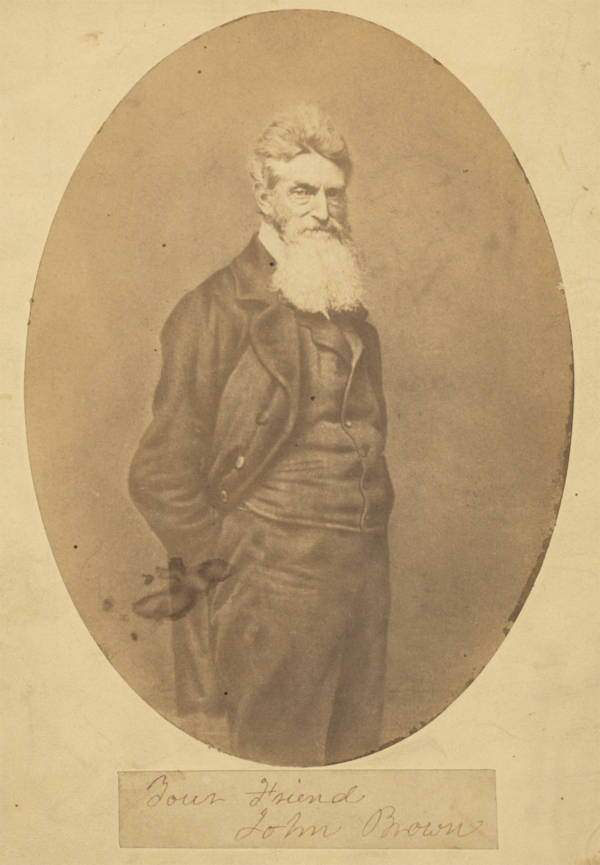
Library of CongressJohn Brown. 1859.
While Brown’s raid failed in its intended purpose, what it did accomplish was to add to the fear and distrust that Southerners had for Northerners and abolitionists. John Brown was found guilty of treason and sentenced to hang.
On December 2, 1859, the morning of his execution, Brown wrote:
“I John Brown am now quite certain that the crimes of this guilty, land: will never be purged away; but with Blood. I had as I now think: vainly flattered myself that without very much bloodshed; it might be done.”
In much of the South, it was looked upon as a warning of what was to come if the slaveholding states stayed with the Union. The threat of armed abolitionists invading seemed more real than ever.
It was in this atmosphere, and after almost four years of the ineffective presidency of James Buchanan, that the election of 1860 took place.
The Election Of 1860
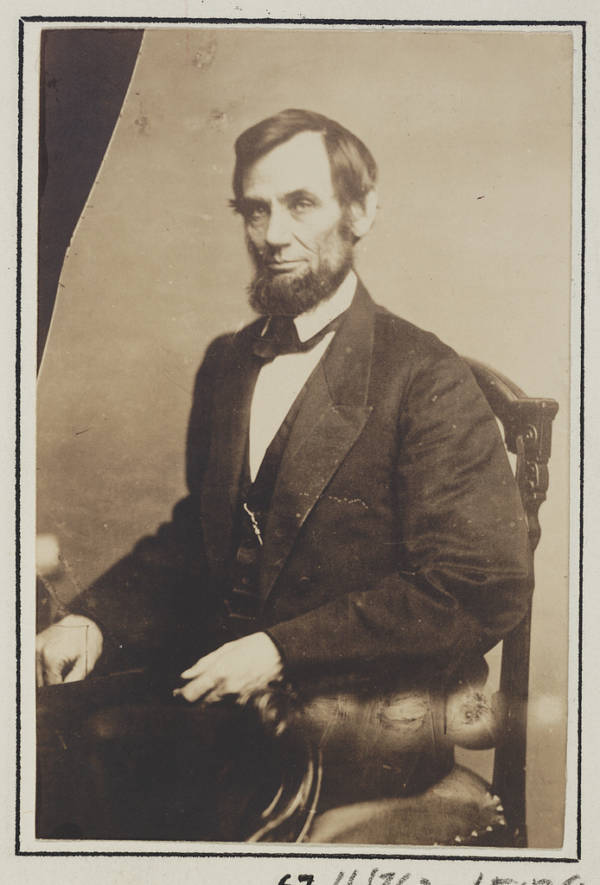
Library of CongressAbraham Lincoln. 1861.
For their part, the Republican Party nominated Abraham Lincoln. The party itself had only just been formed in 1854, as a response to the Kansas-Nebraska Act, because Republicans opposed allowing slavery in the territories.
The Democrats, however, could not agree on a position. In fact, Southern leaders walked out of the first Democratic Convention because of their disgust with the leading candidate, Senator Stephen A. Douglas.
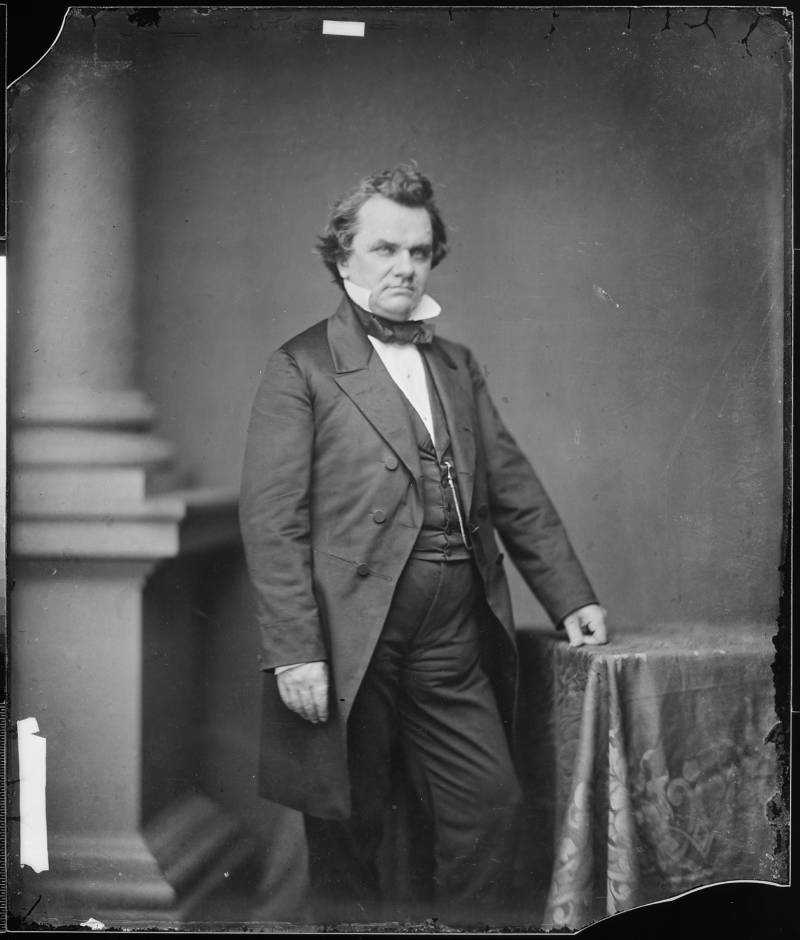
National Archives and Records AdministrationStephen A. Douglas. Circa 1860-1865.
Douglas believed in “popular sovereignty” when it came to slavery in the territories. In other words, he believed that the territories should have the right to decide the slave issue for themselves. This went against the beliefs of the Southern radicals who were against any restrictions on slavery.
Nevertheless, Douglas was nominated at the Democratic Convention. However, Southern leaders then split from the party and nominated their own candidate, John C. Breckinridge, who believed that territories did not have the right to outlaw slavery and that only a state could have that right.
Finally, the Constitutional Union Party also jumped into the race with slave-owning candidate John Bell. Had those who supported slavery been able to unite behind a single candidate, we may have had a different 16th president. But they didn’t, and Abraham Lincoln won the 1860 election with just 39.9 percent of the vote.





